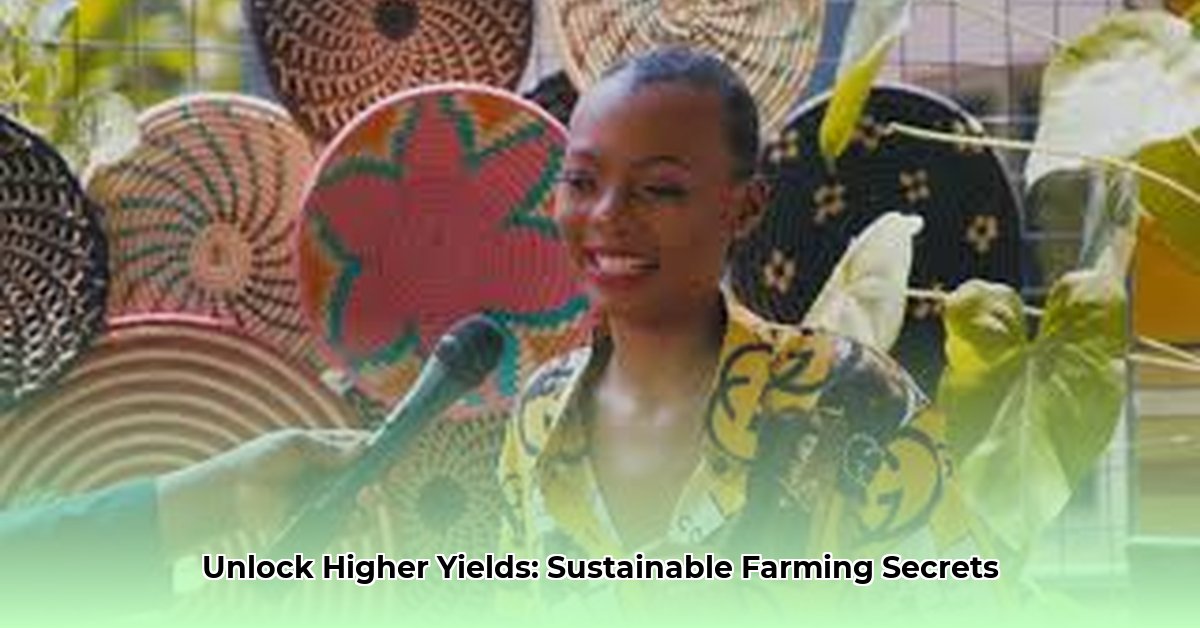
Sustainable Farming: A Path to Higher Yields and a Healthier Planet
Let's shift our focus from potentially illegal downloads to a far more rewarding pursuit: building a sustainable and thriving farm. This guide explores practical, ethical methods for maximizing crop yields while minimizing environmental impact. Instead of chasing risky online content, we'll harness the power of knowledge and responsible practices to achieve bountiful harvests. We'll examine proven techniques and explore how to implement them effectively.
Water-Wise Farming: Optimizing Irrigation for Maximum Efficiency
Water scarcity is a growing concern. Efficient irrigation is crucial for sustainable farming. Drip irrigation, delivering water directly to plant roots, significantly reduces water loss through evaporation and runoff. Smart irrigation systems, incorporating soil moisture sensors, ensure plants receive only the necessary water, conserving resources and maximizing yield. This precise approach not only boosts harvests but also protects the environment. Isn't that a far more valuable investment than a potentially harmful download?
Precision Agriculture: Technology for Targeted Resource Management
Modern technology empowers farmers with unprecedented precision. GPS-guided machinery, drones, and sensor networks enable targeted application of fertilizers and pesticides. This precision minimizes waste, reduces environmental contamination, and promotes healthier plant growth, ultimately leading to increased yields. This intelligent approach is a far cry from the risks associated with downloading questionable online content.
Soil Health: The Foundation of Sustainable Farming
Healthy soil is the cornerstone of successful agriculture. Practices like crop rotation (alternating crop types annually), cover cropping (planting non-cash crops to improve soil health), and no-till farming (minimizing soil disturbance) contribute to richer, more fertile soil. This results in healthier plants, greater water retention, and increased nutrient availability, directly impacting yield and long-term farm sustainability. Do you really need a risky download when you can unlock the power of healthy soil?
Your Step-by-Step Guide to Sustainable Farming Practices
Here's a practical, actionable plan to incorporate sustainable practices into your farm:
- Assess Your Current Practices: Begin by analyzing your existing farming methods. Identify areas for improvement and potential opportunities for sustainable practices.
- Set Realistic Goals: Start with one or two manageable adjustments. Ambitious changes can be overwhelming, and incremental progress is far more sustainable.
- Research and Learn: Explore available resources, including online guides, local agricultural extension offices, and seasoned farmers. Continual learning is essential for success.
- Experiment and Adapt: Sustainable farming is an iterative process. What works for one farm might not work for another. Experiment, observe, and adjust your strategy based on results.
- Monitor and Refine: Track your progress. Collect data on crop yields, water usage, and other key metrics. Use this information to refine your practices over time.
Key Advantages and Challenges of Sustainable Farming
Advantages:
- Improved long-term yields: Healthy soil and efficient resource management lead to greater productivity.
- Reduced environmental impact: Sustainable practices minimize pollution and conserve natural resources.
- Enhanced soil health: Improved soil structure promotes water retention and nutrient availability.
- Increased farm resilience: Sustainable practices build resistance to climate change and pest infestations.
Challenges:
- Higher initial investment: Some sustainable technologies require upfront capital expenditure.
- Steeper learning curve: Sustainable farming demands a deeper understanding of ecological principles.
- Potential for lower yields initially: Transitioning to sustainable methods may initially result in reduced yields.
- Market access challenges: Finding markets for sustainably grown produce can sometimes prove difficult.
"Sustainable agriculture isn't just about producing food; it's about creating a resilient and healthy ecosystem for future generations," says Dr. Emily Carter, Professor of Agronomy, University of California, Davis.
By embracing sustainable farming practices, you’re not just increasing your yields; you're investing in a healthier planet and a more secure future for your farm and the wider community. Let's grow together!
⭐⭐⭐⭐☆ (4.8)
Download via Link 1
Download via Link 2
Last updated: Saturday, May 03, 2025